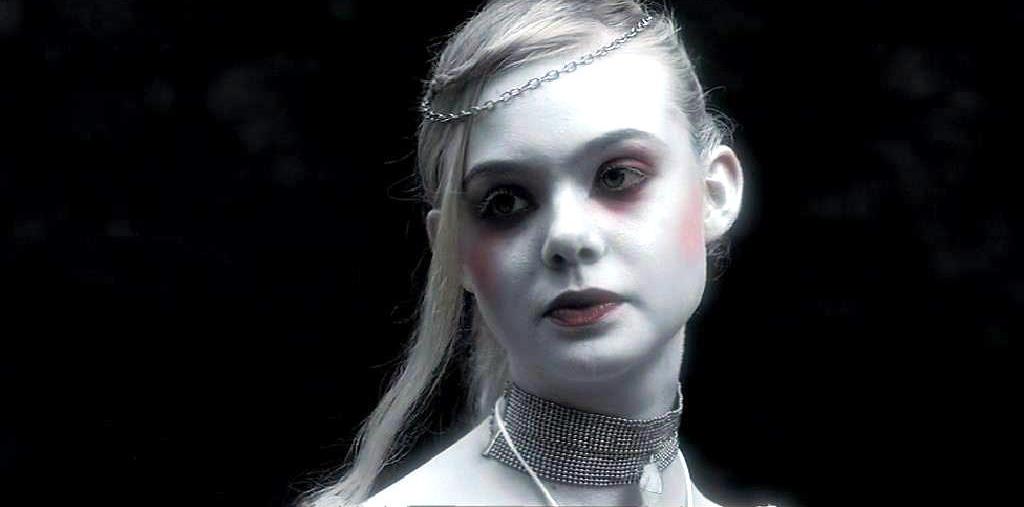
Just as every great writer or painter delivers one trashy novel or disappointing painting, every great director in cinema makes at least one bad movie in his/her career. It’s inevitable. And while there are many great directors currently working, this list focuses on the ones who have commercial, as well as critical success.
Directors whose names are known well enough that no individual has to ask, “What movies did he/she direct?” This is not to say that the movies on this list are completely without merit. Some in fact contain memorable moments in cinema, but the director has proven that he/she can do so much better.
1. Alexander (Oliver Stone)
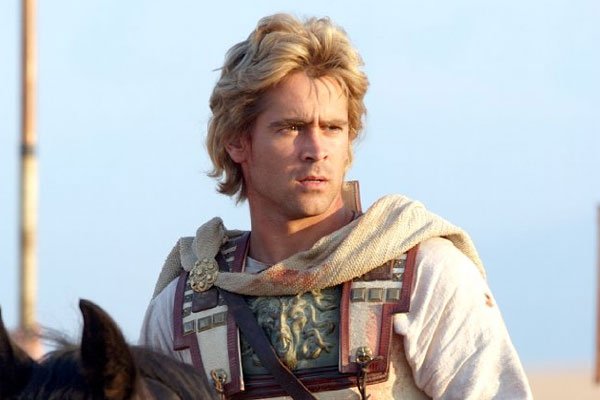
Alexander covers most of the life of Alexander the Great, King of Macedonia, who in his 35 year lifespan conquered most of the world. His story is legendary, almost mythical. Sadly, the same cannot be said about the film directed by Oliver Stone.
Stone has taken on great moments in history with JFK, Nixon, and Platoon. Such films attacked the audience with quick, clever dialogue, fast cuts, and excitement that barely allowed time to breathe. Alexander stretches a boring 3 1/2 hours, where so many words are wasted about the honorable relationships between men, civilizing the Earth, and Alexander’s homosexual tendencies.
Colin Farrell is a fine actor, but he cannot carry Alexander. It is painful to watch him rely on his cute boyish looks and sudden outbursts of anger with corny dialogue. Some scenes prove even laughable, especially where he stabs his best friend, cries and shivers uncontrollably. The last hour is particularly hard to watch mostly because of Farrell’s performance.
The film moves in a somewhat narrative order until an hour and half way through when suddenly it decides to jump back in time, and away from the primary story, to focus on Alexander’s troublesome relationship with his parents. It is confusing and stops the movie dead. During these scenes, narrator Anthony Hopkins jumps in at random moments to explain what the hell is going on. Never has a narrator been more specific and unnecessary.
The movie starts with the quote “fortune favors the bold” from Virgil – The Aeneid. Stone was definitely bold here, but perhaps he overstepped. One leaves the film thinking not of Alexander the Great as the conquerer, but as a whiny blond haired man with mommy and daddy issues.
2. The Happening (M. Night Shyamalan)
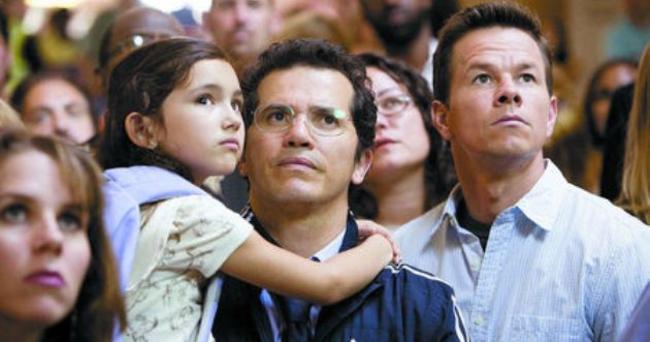
In The Happening some unknown force is making people kill themselves in whatever way they can. People travel from city to city, hoping to escape whatever they are running from.
M. Night Shyamalan peaked at the beginning of his career in 1999 with The Sixth Sense, a masterpiece with great storytelling and memorable performances. Five movies later, he seems to hit an all-time low with The Happening. Never has there been a more ridiculous villain: the wind…or plants. The film isn’t clear on that point.
Mark Whalberg delivers a terrible performance. He is completely unconvincing as the cool science teacher in a Philadelphia school, and spends the majority of the film walking around with the most confused look on his face. He also seems to talk really fast when he doesn’t know how to act.
Zooey Deschanel stares with wide eyes, delivering wooden dialogue like, “Just when you thought there couldn’t be any more evil that could be invented.” The pacing is so slow in the middle, the viewer can hardly get through it. Nothing but people wondering around, trying to figure out what to do, hearing reports of more bad things happening, and staying clear of the wind.
Shyamalan is a masterful visual storyteller. And although The Happening contains some breathtaking images, the story feels incredibly dull. “Could this really be happening,” Whalberg asks. Unfortunately, yes.
3. 1941 (Steven Spielberg)
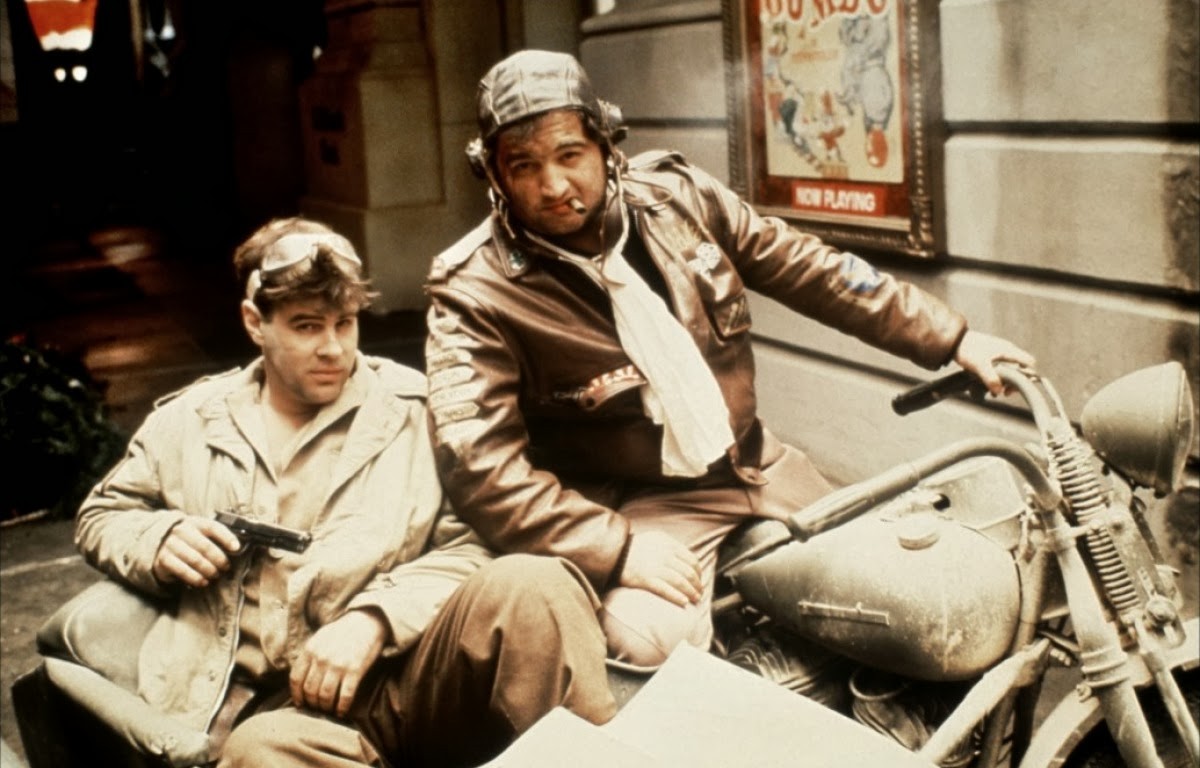
Over patriotic Americans defend their homeland against an invasion from a Japanese submarine in 1941.
“Madness. It’s the only word to describe it,” states Major General Stilwell. And that pretty much sums up Steven Spielberg’s attempt at a ludicrous World War II comedy.
The movie is chaos! Everything roars off the screen with countless slapstick gags, fast talking dialogue, and bad sexual innuendoes from every character actor found on Saturday Night Live. There is constant noise throughout the film, especially from gun fire.
One thing Spielberg has always done well is to present a form of communication in his films, whether it’s between machines, aliens, or people. No such communication exists here. As for character development, there really is none. Every character has their own small objective, which does not concern anyone else. None of the characters have any redeeming qualities, so no attachment is formed with them.
No other director’s movies have been more critically and commercially successful than Spielberg. For over four decades he has changed the face of cinema, which makes it hard to believe he created something like 1941.
4. Exodus: Gods and Kings (Ridley Scott)
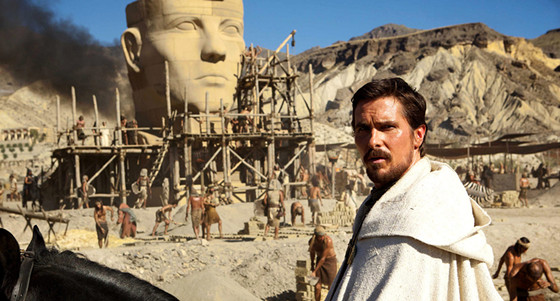
Exodus: Gods and Kings is the newest attempt at creating The Ten Commandments story, told in such vivid color 50 years ago by Cecil B. Demille. The result is a disappointing mess from director Ridley Scott.
Scott, who developed some of the most memorable characters in cinema, namely Ripley and Maximus, fails here in making none of the characters remotely interesting. Everyone is very moody and dark and devoid of all humor. Christian Bale’s acting feels wooden, and great actors like Sigourney Weaver and John Turturro are just there for show. No one can believe all these famous actors who speak with different accents are from Egypt.
The story should be compelling, but it’s not. The audience has seen it before and Scott gives nothing new over a dragging 2 1/2 hours. The special effects are nothing to be proud of and one gets tired quickly of all the fake, arial shots of Egypt.
Scott has proven he can create historical epics with his masterpiece Gladiator, but with Exodus: Gods and Kings he caves, giving the audience the typical, overly long, poorly constructed storytelling one would find in a lazy, Hollywood wannabe blockbuster.
5. Ghosts of Mars (John Carpenter)
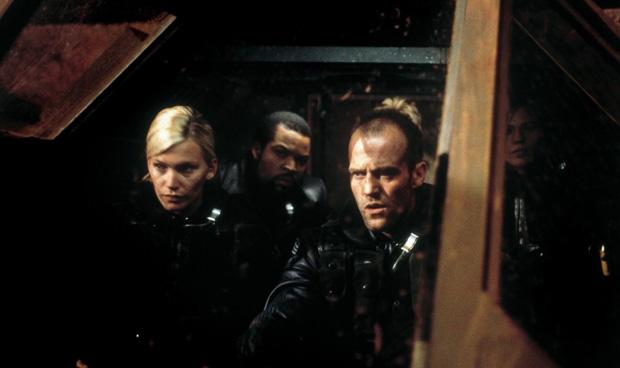
In John Carpenter’s Ghosts of Mars, a small military group is sent to a colony on Mars to retrieve a prisoner. When the group arrives they find the native population has gone crazy, infected with an otherworldly entity.
John Carpenter has proven he can create good movies from low budget scripts, such as Halloween, Assault on Precinct 13, and Escape from New York. He can’t pull of the same magic with Ghosts of Mars. The sets and use of CGI look embarrassingly cheap and that wonderful feeling of isolation that Carpenter captured so perfectly in The Thing proves non-existent here.
All the actors in the film look extremely bored most of the time. Natasha Henstridge as Lieutenant Melanie Ballard seems to have one facial expression and that’s, “I’m tough. Don’t mess with me.” None of the other characters are interesting, except maybe Jason Statham, who manages to pull of some of the cheesiest pickup lines possible. All the dissolves, and multiple flashbacks, cannot speed up this dragging film.
Carpenter attempts to implement themes and images from his previous films like Assault on Precinct 13, Escape from New York, and even The Fog, but it does not work on the red planet. The result is a poorly acted and slow paced film. It’s a disappointment because John Carpenter is capable of so much more.
6. And So It Goes (Rob Reiner)
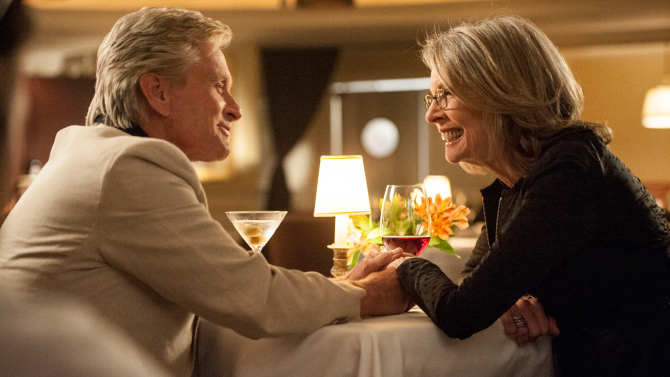
Director Rob Reiner tries to recapture the magic he once created with When Harry Met Sally in And So It Goes, but does not even come close. Michael Douglas plays a selfish, arrogant realtor who must take care of his granddaughter when his son goes to jail. With the help of his sweet neighbor, Diane Keaton, he begins to grow as a human being.
The plot is as old as time: a grumpy old man helps a younger individual in a a time of need and the the old man learns something. Reiner gives no surprises in this romantic comedy. Everything has been seen before. The director even tries to bring back fond memories of Annie Hall with Diane Keaton singing love songs in a small cafe. Douglas is solid with the serious material but falls flat with almost no comedic timing. There is no clever banter between Douglas and Keaton like there was between Billy Crystal and Meg Ryan in When Harry Met Sally.
Perhaps it would have been better if the gender roles had been reversed and Keaton was the cold and calculating one. Instead, what is delivered is a cliche romantic comedy with lazy writing, almost zero laughs, and the most uncomfortable seduction/post coital sequence of senior citizens.
7. Diary of the Dead (George A. Romero)
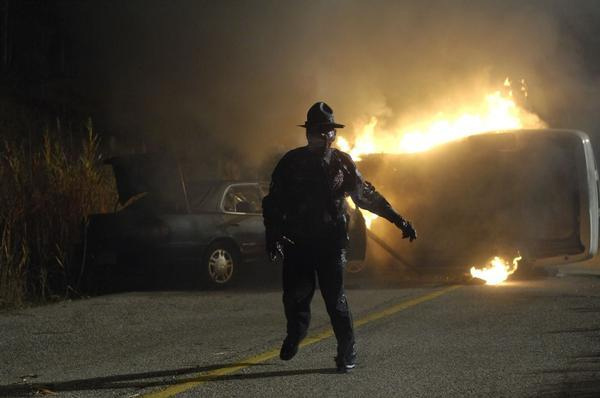
While shooting a movie, a group of college students get caught up in the beginning of the zombie apocalypse.
With Diary of the Dead, director George A. Romero converts his zombie world into the “found footage genre”, made popular by the likes of The Blaire Witch Project and Paranormal Activity. The handheld, shaky camera work gets old really fast. Romero mastered the documentary style with Night of the Living Dead, but here with Diary he goes overboard.
The narrator, Debra Moynihan, insists the movie is meant to scare the viewer, but it’s boring and pretentious instead. With terrible dialogue such as, “The problem is people aren’t waking up dead. Dead people are waking up,” and “I prefer the darkness. It’s easier to hide in the dark,” the movie feels like it was written by a stoned freshmen. The dialogue from the narrator is also bland and distracting.
Romero still has a wicked sense of humor; there is a hilarious moment when an Amish man blows up three zombies with a stick of dynamite. Unofrtunately the movie primarily spends an endless amount of time asking the question, “Should we be filming this?” “
With films like Night of the Living Dead and Dawn of the Dead, Romero proved masterful at sneaking in messages to the viewer that something was wrong with society, whether it was racism or consumerism. But with Diary of the Dead, the director hammers home the message that people should not be filming all the violence in the world and the media is terrible. Romero is not subtle in his messages anymore. He used to be and it was so much more effective.